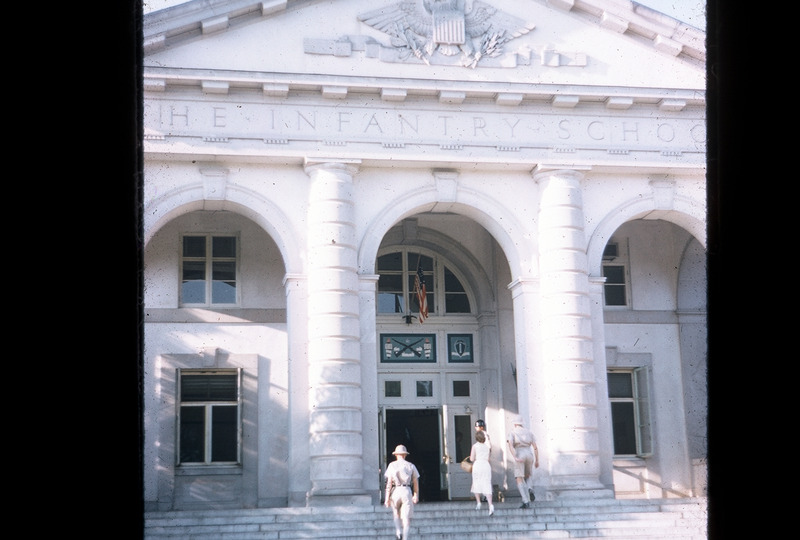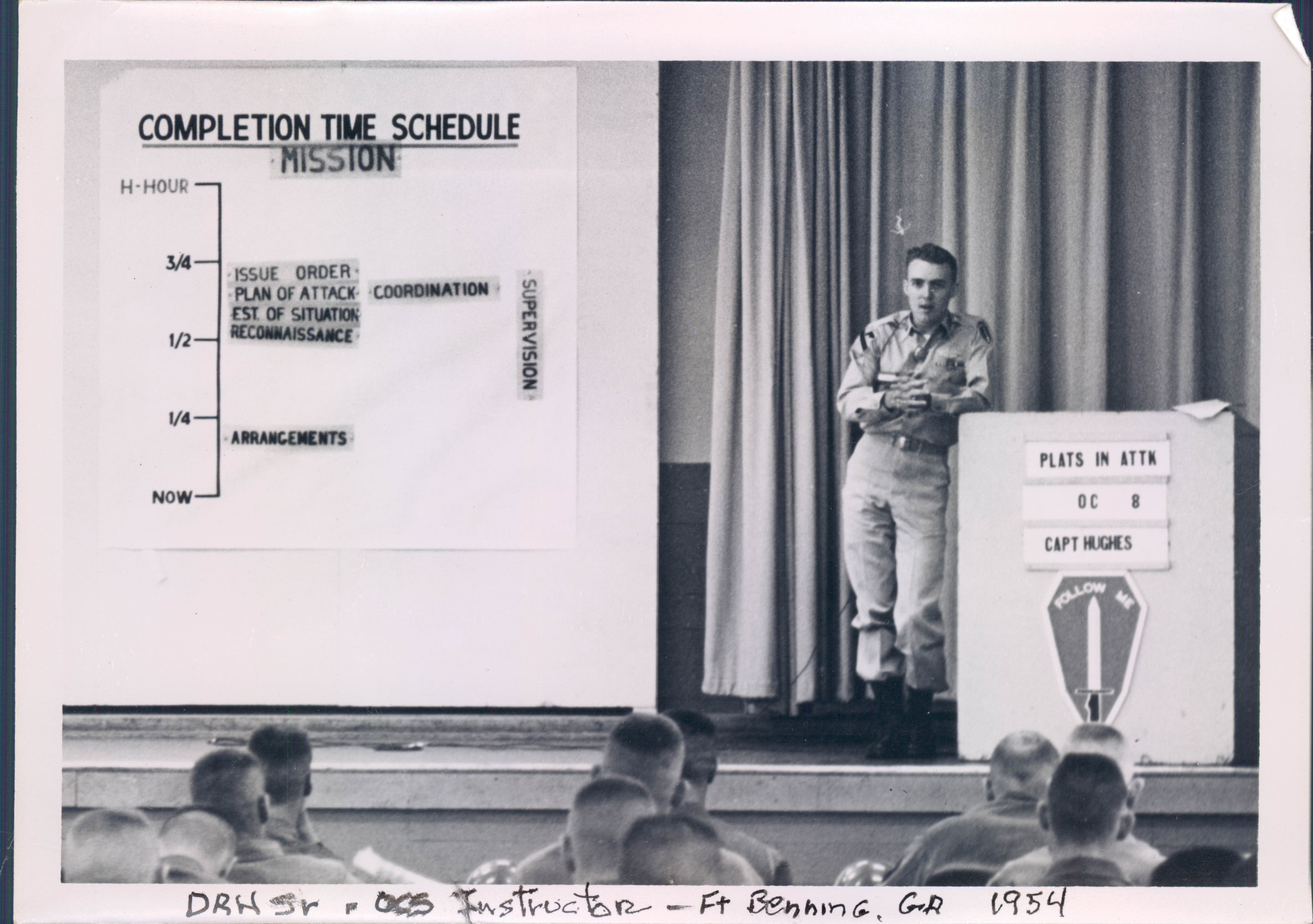 |
My Fort Benning Years
My orders said to report to the Infantry School, Fort Benning, Georgia.
It was ironic that part of the reason the Army sent me to the Infantry School was to 'catch me up' on that Infantry Officers Basic Course I never got coming out of West Point - which all our Infantry Branch grads were supposed to have had before any of them went into combat in Korea. That was just for me to get my 'ticket punched' showing I had that 'school.' Even though I already had more Infantry Combat during my first year in Korea, than any of the 'TIS' Instructors!
And the other reason I was sent there, was because I WAS so experienced that the School wanted me as a combat experienced and highly decorated junior Army officer to teach the Officer Candidates, ROTC officers just coming on active duty, and to teach subsequent classes of West Point Infantry graduates BEFORE they went into combat!
But I never really fit into the way the Infantry School teaches Infantry Tactics. Part of the reason was that I learned - as the saying goes 'OJT' -On The Job Training', and NOT from the doctrinal Field Manual 7-10 "The Rifle Company in the Attack"
By my largely applying the broad Principles of War I learned at West Point in Military History, I made it up as I went along.
In brief, I had a mental clash between 'what worked in Korea' and Army 'Doctrine' on how it should work! Using methods largely derived from World War II Tactics.
Then as I was put in the 'Platoon Committee' - where 2d Lieutenants start their Infantry officer careers, my very substantial combat record, attested to by the Distinguished Service Cross, two Silver Stars, one Bronze Star for Valor, the Greek Cross of War, two Purple Hearts, and Combat Infantry Badge - got in the way of my just delivering Doctrinal Content. Both the older officers - senior captains and majors - who had served in WWII but with very little combat - were somewhat intimidated by me. They were in the committees because there were too few Korean War returnee Infantry officer with fresh combat experiences to 'staff' the Infantry School.
That would change in time, but I sort of stuck out as a sore thumb when I got there.
|
|
Duty and Pleasure
I couldn't really complain, for as I wrote here under 'Married Years' I started courting Patsy Simpson almost as soon as I got to Benning. And marriage to her would get me out of those dismal, hot, southern US Bachelor wooden Barracks and into more modern Married officers Quarters.
So while I had plenty to do while off duty, I was perfectly content buckling down to become an Instructor - who was as comfortable in a classroom full of new lieutentants, as I was in the field training, where the lessons were applied on real ground - which is never nice and tidy as it is in Field Manual Maps.
My Writings Pursued Me
It should not have surprised me that, because of the number of publications which had published my writings - from Shanks Bootees to my ruminations on what it means to be a combat leader that was entered into the Congressional Record - I seemed to be locally very 'newsworthy' as Fort Benning and Columbus Georgia newspapers kept writing about what I had published. As well as making pretty good news each time I was called into the Headquarters for an Awards ceremony, as neither my last Silver Star or the Distinguished Service Cross had been formally presented to me.
But my intense Combat experience over the past year was not out of my system yet. I couldn't just forget about the men who died, and who were injured while we fought. That kept getting to me to the point it became part of my discussions with Patsy as my future wife. And I had much to talk with now Major John Flynn, who was my first company commander, and then as an Operations Officer working for controversial Colonel Dan Gilmer before being wounded, sent home, and then to Fort Benning to take the Advanced Infantry Course and be an Instructor.
Flynn, married to his new wife Nancy, lived in Fort Benning quarters - newer small, but quite adequate brick structures. I hung out with them, both by myself and with Patsy. He was expecially interested in amplification of my 8 page letter I had sent him in early March from Seattle, not knowing that I would see him later at Fort Benning.
I still felt I wanted to write something more profound than either Shanks Bootees or the philosophical pieces that had become pretty famous - as many Army wives at large Fort Benning were subscribers to the Ladies Home Journal and read it as it was printed while I was at Benning.
I had not written anything coming out of the horrendous battles of Hill 339 or 347 less than a year before. They had affected me to the point that I realized I had what today would be branded Post Traumatic Stress Disorder - PTSD. It was very mild, but exhibited by my being moved to tears - emotionally more easily than I ever had in my life before.
So I wrote a story that the Ladies Home Journal readily accepted. Named "Death of a Soldier" in which I relate the reality and my reaction to the death of one of my soldiers during the battle on the night of the 28th of September 1951, on Hill 339. The soldier was real, as was his death, but I did not use his real name.
It was a 2,000 word story accepted, published in April 1953, and I was paid $1,000 for it - $.50 a word.
"Death of a Soldier" is in the next chapter of this writing - 'Fort Benning (2)'

